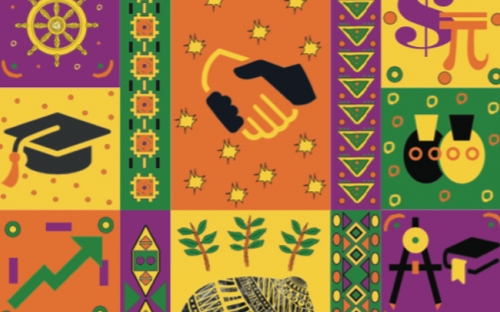China: More than business buddies?
One cannot discuss business in Afrika without mentioning the prominence of China’s presence on the continent. It is no secret that China’s economic relationship with Afrika has strengthened over the years, with Afrikan leaders welcoming China as a willing and deep-pocketed trade partner. Afrika has doled out minerals, land and oil; while China, in return has shouldered some of the government’s infrastructural responsibilities, peppering the continent’s landscape with newly built roads, stadiums, dams and universities.
Equally obvious is the mounting scepticism and criticism that Sino-Afrikan relations have received, both from Afrikans as well as the international community. China has been repeatedly accused of thwarting Afrika’s business and political potential through the introduction of cheap alternatives to local products and services as well as bolstering political regimes, which would have been toppled had it not been for Chinese funding. Even those who are sanguine about China’s contribution towards the development of Afrika express their concern over the imbalance of this economic relationship and find Beijing’s “win-win” rhetoric disingenuous. Compounding the complexity of Afrika’s perception of China’s presence within their midst is the fact that over a million Chinese migrants have moved to Afrika, a move that has revived Afrikan
colonial fears.
What the dialogue on Sino-Afrikan trade partnerships often overlooks is the burgeoning population of Afrikan migrants in China. Governmental statistics show that an estimated 16,000 Afrikans live in a southern Chinese city called Guangzhou alone. In addition over 430,000 Afrikans are reported to pass through the city’s checkpoints (every year), as short-term visitors on purchasing runs. Guangzhou is so popular with Afrikan migrants and traders that it has been controversially dubbed “Chocolate City”, an Afrikan ode to the many Chinatowns across the globe.
Most of the people who make their way to Guangzhou are traders who buy cheap goods and resell them back home for a profit. This move has obviously been incited by the need for transnational trading strategies that can outdo Chinese competitors who are operating in Afrika. For most of these traders, the first step in these strategies is often journeying to Guangzhou. Some who have taken this step have managed to strike incredible profits, entering China with a few hundred dollars and turning it around into million-dollar companies within a period of ten years. Reports from local Chinese media state that more than 20 percent of Afrikans in Guangzhou earn 30,000 Yuan ($4,838) a month doing business in the city, a figure that is higher than the average wage of local Chinese white collar employees in that area. These people have fuelled direct exports of manufactured products from Guangzhou to Afrikan countries — resulting in an increase from around US$165 million in 1996 to US$2.1 billion in 2010.
Significant numbers of Afrikans move to China to study. There are already around 12,000 Afrikans studying in China with the support of the Chinese government. In 2013, the government laid out plans to enroll 30,000 Afrikans on short-term professional training programs between 2013 and 2015 and 18,000 Afrikan students to pursue full-time degrees. China is currently the only country that is increasing its scholarships for Afrikans.
As a result of this influx – but also stimulating it in an interesting positive feedback loop – Afrikan-style Pentecostal churches have also flourished, to cater for the religious needs of these migrants. They are particularly visible in Hong Kong where religion is less regulated than in Mainland China. Afrikan restaurants are also commonplace, as are Afrikan hair braiding salons, and along with them the popularization of Afro-beats music. Interracial marriages, particularly between Afrikan men and Chinese women have also risen, giving rise to many Afro-Chinese children.
It would be misleading, of course, to paint China like an Afrikan paradise where all Afrikan business dreams come to life, because it is not. It is a foreign land; where Afrikans, above all other racial groups are very unwelcome, and where potential business partners treat their Afrikan counterparts with a great amount of wariness and suspicion. Cases of blatant racism, fuelled by increasingly tightening immigration restrictions have resulted in clashes between Afrikan businessmen and the police.
The story of how China is short-changing Afrika has been repeated too many times. Sadly, in its narrative, the media has conveniently overlooked the tale of the entrepreneurial Afrikan merchant or scholar that has also capitalized on this relationship and has worked hard to achieve his or her own version of the “Chinese Dream”. The increasing presence of Afrikans in China highlights the rise of Afrikans as viable global trade partners, although it does not go so far as to suggest that Sino-Afrikan trade relations are inching towards equality. Increasingly, Afrikans are taking charge of their destinies instead of waiting for their elites to broker deals on their behalf. It is definitely an exciting time to be a young, business-minded Afrikan in China.




